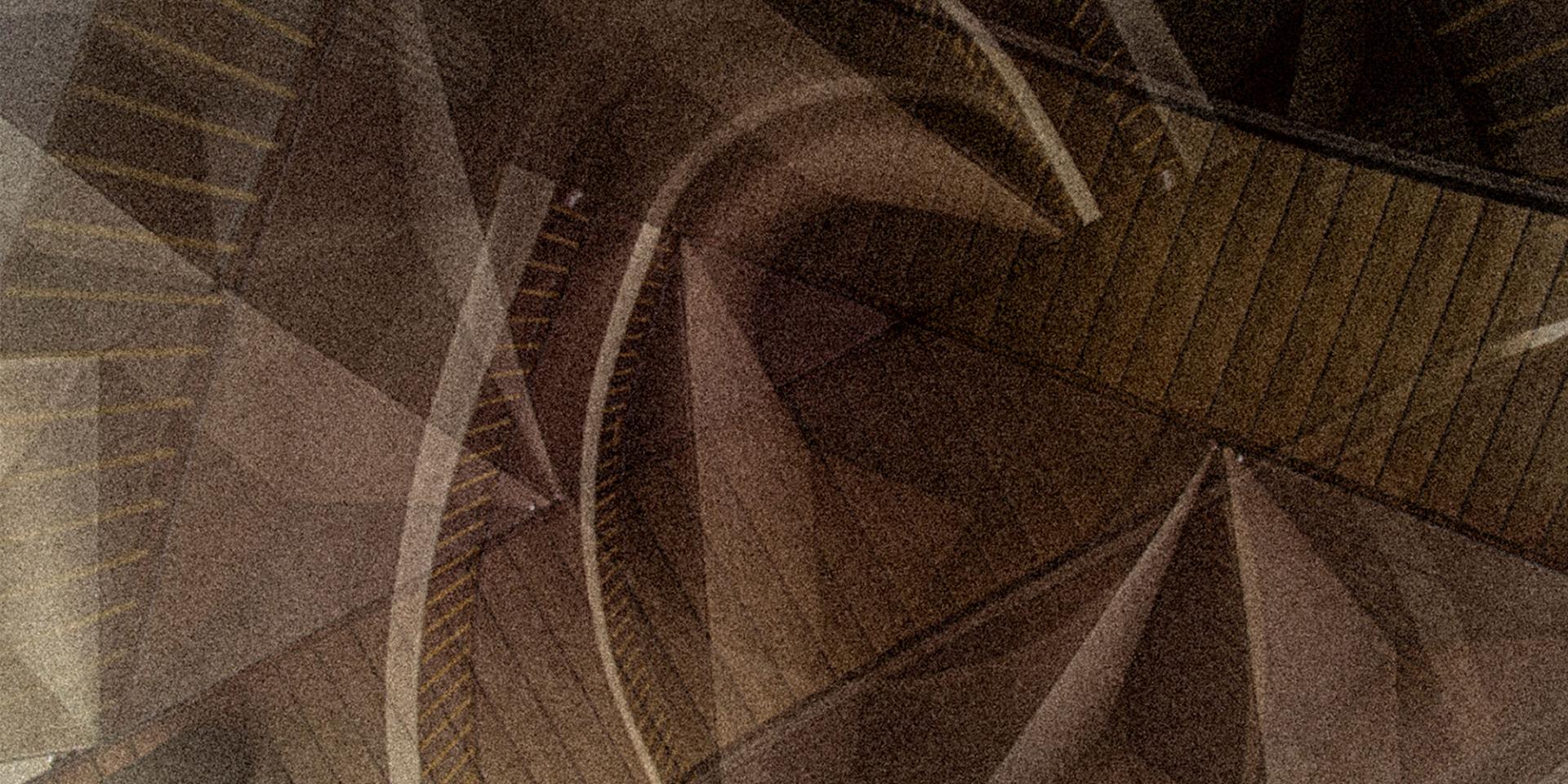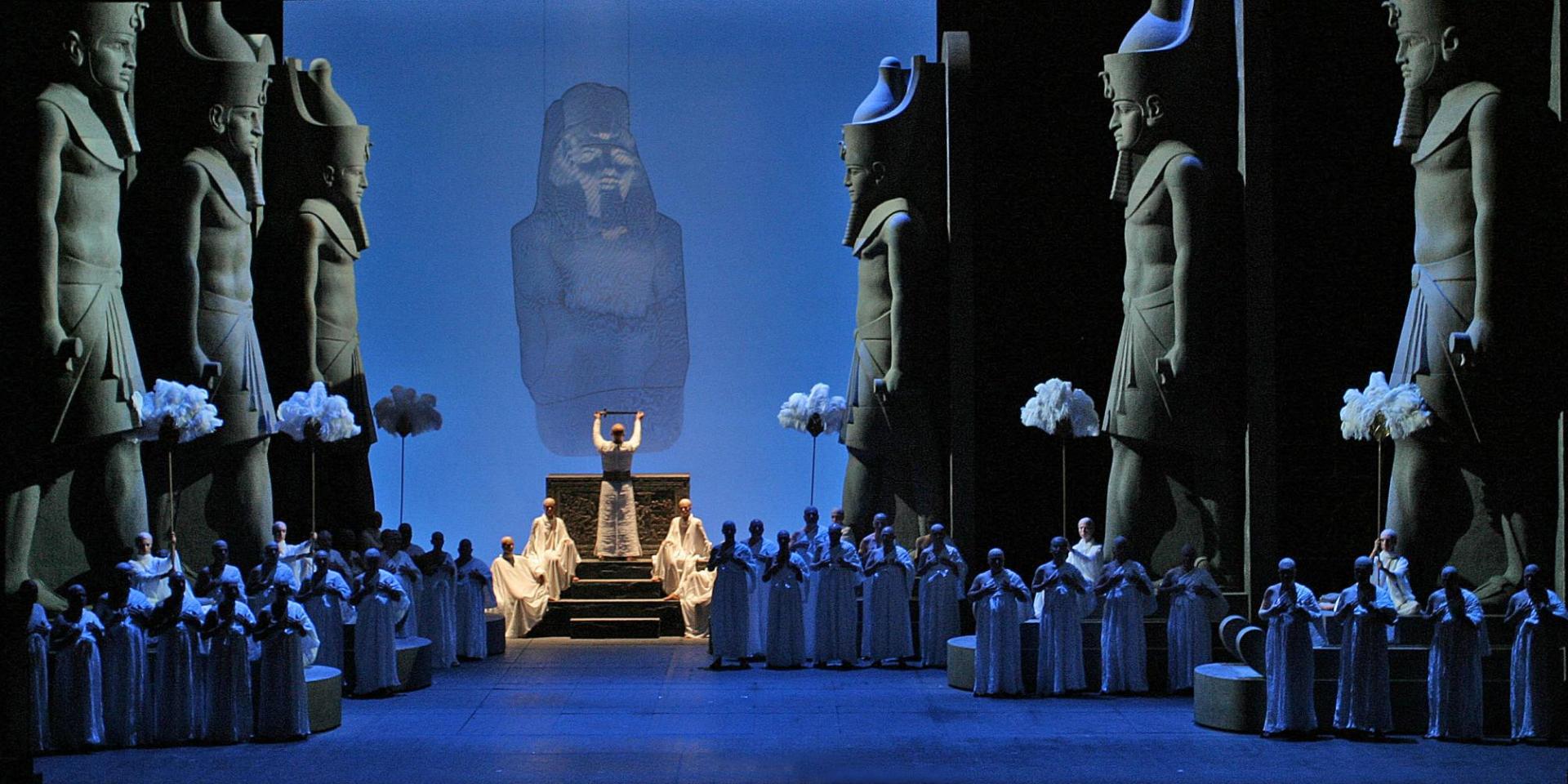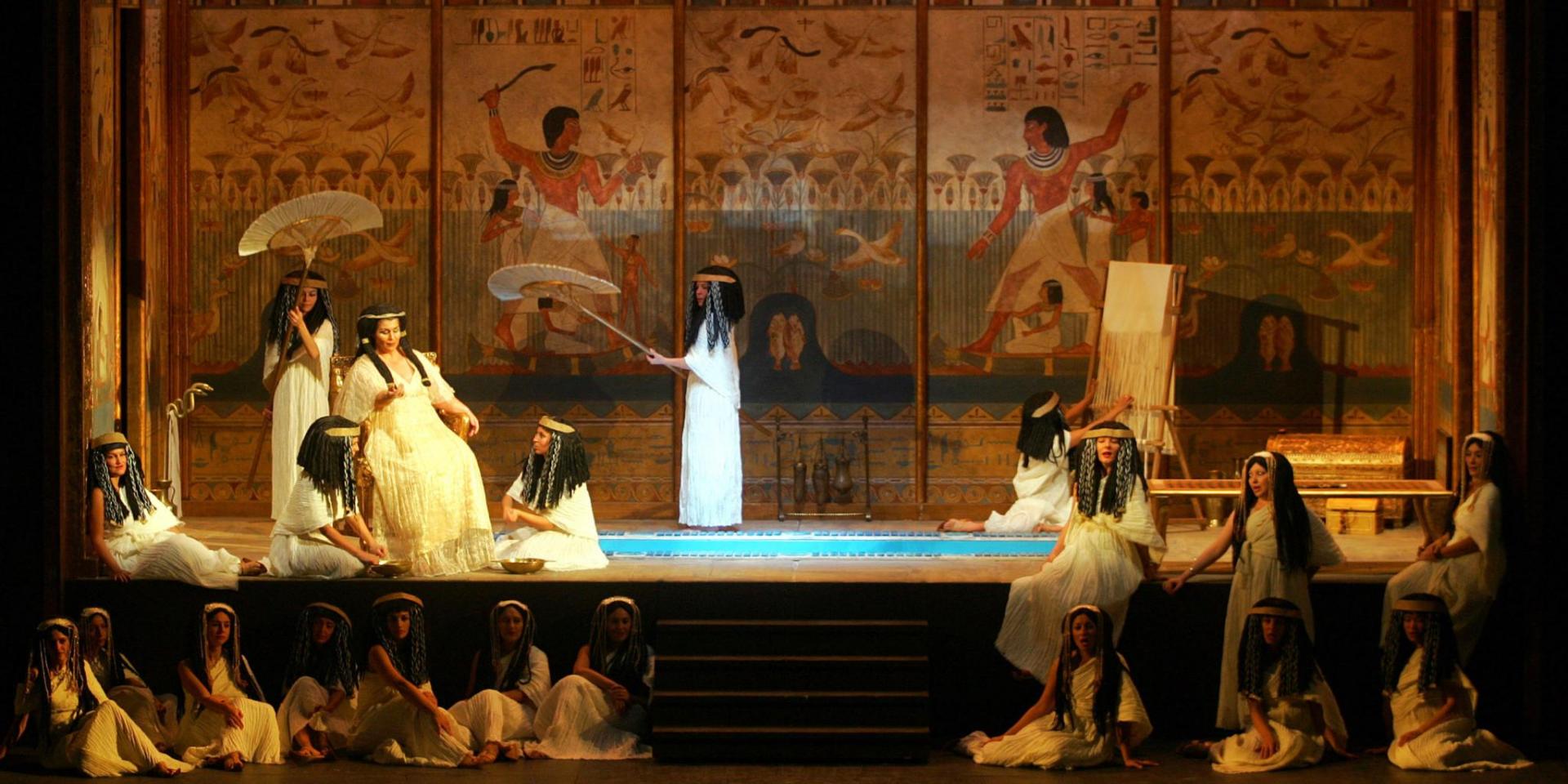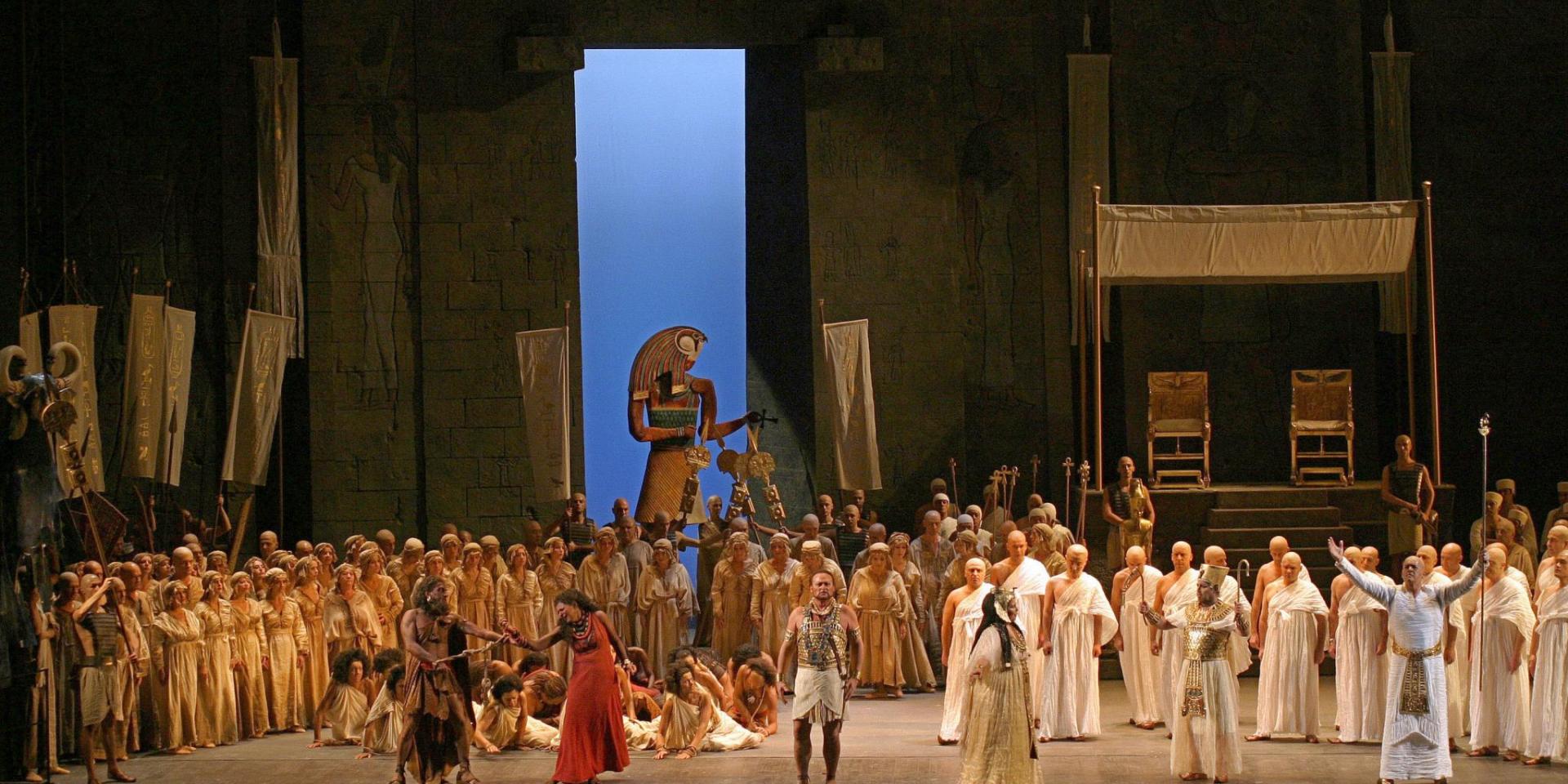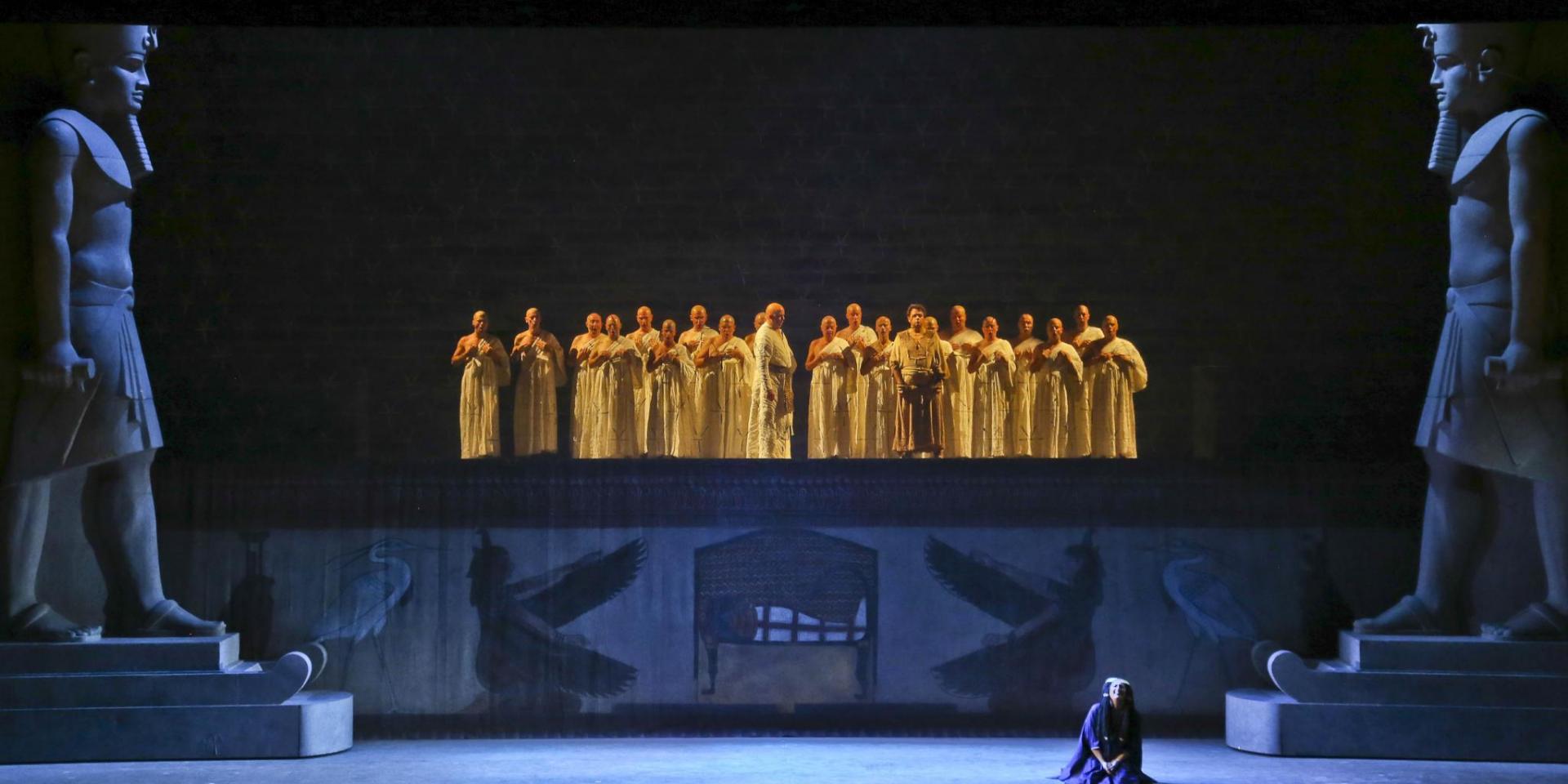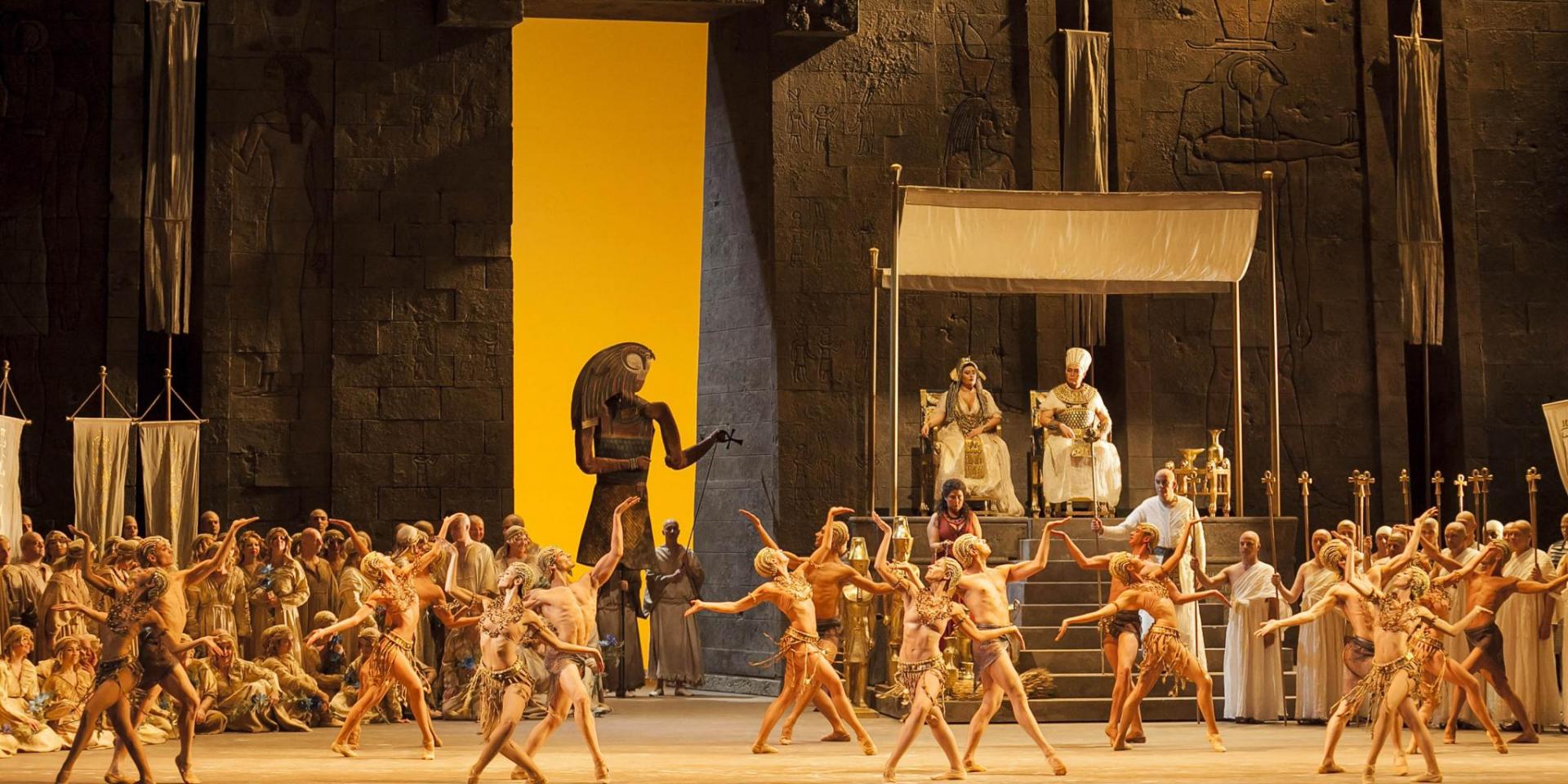Aida | Giuseppe Verdi
To mark the inauguration of the Cairo Opera House in 1871, the Viceroy of Egypt commissioned the most famous opera composer of the time, Verdi, to write a new melodrama set in the era of the pharaohs. Hence, Aida was born, a work in which majestic temples and military parades provide the backdrop for a passionate story of patriotism, love and death. Aida is an Ethiopian princess taken prisoner by the Egyptians and turned into a slave; her heart is torn as she longs to return to her homeland but is in love with an enemy, the captain of the guards Radamès, who reciprocates. The reversals of fortune force the two young people to choose between their homeland and love; the tragic and extremely romantic finale will unite them together for eternity.
With its exoticism, which can be subtle or flamboyant, and its extraordinary melodies, Aida is still one of the best-loved operas today. Indeed, it is impossible to be unmoved by the beauty of pieces such as the Triumphal March and Celeste Aida.
The young Michele Gamba, highly acclaimed for the great sensitivity he shows in conducting Verdi's and Puccini's operas, directs a cast of renowned Verdi performers, two for all, the American soprano Angela Meade and our audience's favourite Erika Grimaldi. On stage is the lavish staging by Oscar-winning director William Friedkin, inspired by the original architecture of ancient Egypt and created especially for the Regio.
Lecture: Wednesday 22 February 2023 at 6pm
Opera in four acts
Characters and cast

Erika Grimaldi

Anna Nechaeva

Angela Meade

Silvia Beltrami

Anastasia Boldyreva
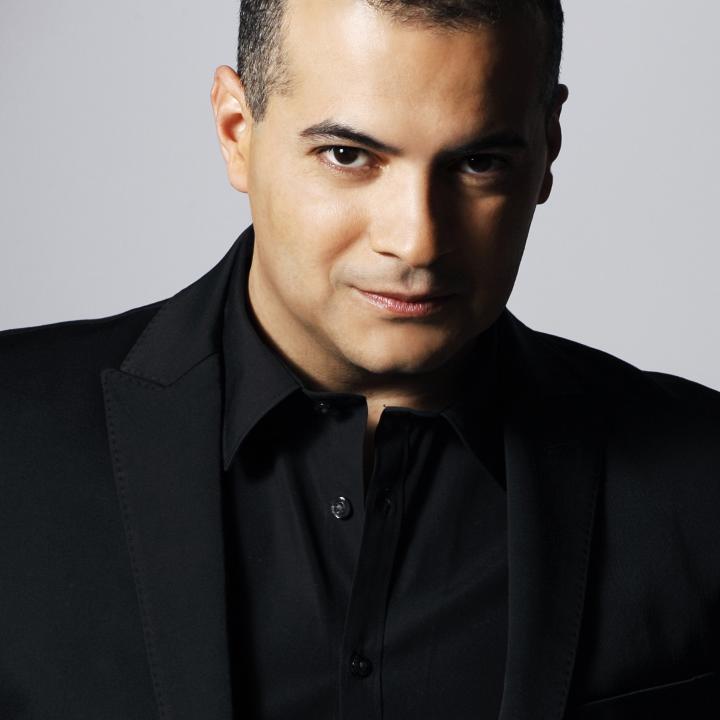
Gaston Rivero

Stefano La Colla

Gevorg Hakobyan

Evgeny Stavinsky

Marko Mimica

Thomas Cilluffo

Irina Bogdanova (Regio Ensemble)
Performances
La presentazione preliminare prevista in Foyer Toro a partire dalle ore 19.15 sarà a cura di Chiara Buratti attrice e Giulio Laguzzi pianoforte; con testi di Vittorio Sabadin.
Durante questa recita è attivo il Bimbi Club
During this performance the Baby Club is available
Synopsis
atto
Scene I. The King’s palace at Memphis.
The High Priest Ramphis tells Radamès that the Ethiopian army is again marching on Egyptian soil, and he implies that he has been chosen by the goddess Isis as the supreme leader; he then goes to the King to tell him the prophecy. Radamès is left alone to dream about the moment when he will return in glory to the love of Aida, the Ethiopian slave he is secretly in love with. Amneris arrives; infatuated with Radamès, the King’s daughter asks him mischievously if his obvious happiness is not due to a secret love. Radamès, misunderstanding the Princess’s allusion, and fearing that his own relationship with Aida has been discovered, reacts in such a way as to make her suspicious. Aida’s arrival further complicates the situation, but the tense conversation between the three of them is interrupted by the entrance of the court. After inviting everybody to give their attention to a messenger with the latest news from the Ethiopian frontier, the king declares war and names Radamès commander of the army. Alone, Aida gives vent to her feelings of guilt for having wished victory for Radamès: she, daughter of Amonasro, the Ethiopian King who has taken up arms to give her back her liberty and princely rank that she is forced to keep hidden.
Scene II. The Temple of Vulcan.
Radamès receives the investiture as supreme commander. Ramphis gives him the sacred sword and invokes divine protection on the sacred soil of Egypt.
atto
Scene I. A hall in the apartments of Amneris.
Amneris is preparing to watch the triumphal procession of Radamès. When Aida enters, she gives her the false news of the death of the general; her reaction of despair, and her tears of joy when she tells her that she was lying, confirm the Princess’s suspicions. Aida confesses her love for Radamès, but Amneris is furious, and reminds her that, as a servant, she cannot hope to stand up to her rival.
Scene II. One of the entrances to the city of Thebes.
Acclaimed by the people and preceded by the march past of his troops, Radamès arrives. Amneris places the crown of victory on his head, and the King promises to grant him any request. Radamès asks that the prisoners be brought before them. Among them, Aida recognizes her father, but Amonasro orders her not to reveal his true identity, and addressing the Pharaoh with noble words, he asks for clemency for the defeated army. Radamès requests, as a reward for the victory, that pardon be granted to the prisoners. Amneris is vexed, and Ramphis is worried that the Ethiopian officials, once freed, could again take up arms. The King grants pardon on the condition that Aida remains at court with Amonasro as a guarantee of the pledge of peace of his people. He then announces that he will reward Radamès by offering him Amneris’s hand in marriage and thus destining him as his successor.
atto
On the banks of the Nile.
Ramphis accompanies Amneris to the Temple of Isis for a prayer vigil in the imminence of her wedding. Aida arrives: Radamès has asked her to meet him for what she thinks is the last time. Amonasro surprises her; reminding her of the unfortunate destiny of their homeland and reproaching her for her love for an enemy, he persuades her to try to wring from Radamès a military secret that could allow for the resurgence of the Ethiopian army. Radamès arrives, and tries to comfort Aida: he maintains that once he has repelled the imminent attack of the enemy’s army, the King will not be able to deny him permission to marry her. But Aida realistically reminds him that he cannot escape reason of state or Amneris’s anger. Feeling himself rejected, Radamès agrees to flee with her, and lets slip an indication about the strategy of the Egyptian army. At this point, Amonasro comes out of hiding and presents himself to Radamès as the King of the Ethiopians and father of Aida. Realizing that he has behaved dishonorably, Radamès despairs. While Aida and Amonasro try to drag him away, Ramphis and Amneris come out of the temple. The Ethiopian King draws a dagger, but Radamès prevents him from hurling himself at them. Amonasro then flees, taking with him Aida, while Radamès gives himself up to the guards who have rushed to Ramphis’s call.
atto
Scene I. A hall in the King’s Palace.
Amneris tells Radamès that Amonasro has died in battle, but that Aida survived and has disappeared, and that she will undertake to save his life if he forgets his love for the Ethiopian slave. Faced with his refusal, the Princess abandons him to the judgment of the priests. Radamès is led into an adjoining hall, where Ramphis and the priests accuse him of treason. Since he refuses to say anything in his own defense, he is condemned to being entombed alive under the altar of the god Vulcan. When the priests exit from the hall of justice, Amneris lashes out against their hypocritical cruelty.
Scene II. The Temple of Vulcan.
Radamès is locked up in a niche under the altar of the god, but Aida unexpectedly appears; having learned of his fate, she has hidden there to die with him. While the chanting of the priestesses begins, the two lovers embrace tenderly. Torn by remorse, Amneris enters and, prostrate on the tomb, invokes the goddess Isis to grant peace to Radamès.

